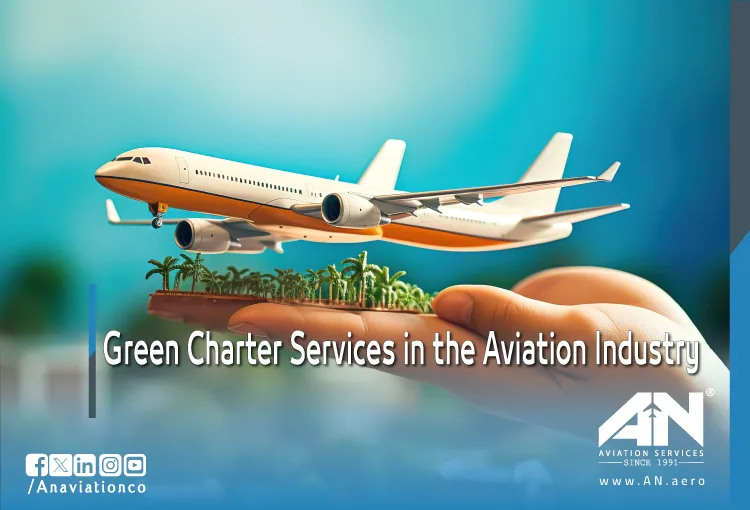
In the aviation industry, sustainability has become more than just a buzzword—it’s a necessity. With growing concerns about climate change and rising emissions, the aviation sector faces mounting pressure to adopt greener practices. Charter services, known for their tailored and flexible approach to air travel, are stepping up to the challenge. Green charter services offer environmentally responsible solutions while maintaining the convenience and exclusivity associated with private aviation.
Green Charter Services: What Are They?
Green charter services focus on minimizing the environmental footprint of private air travel. From selecting fuel-efficient aircraft to implementing carbon offset programs, these services are designed to align luxury travel with sustainability. Operators of green charter flights prioritize eco-friendly practices, such as:
- Using sustainable aviation fuels (SAF): These biofuels, derived from renewable sources like cooking oil or algae, can reduce greenhouse gas emissions by up to 80% compared to conventional jet fuel.
- Optimizing routes: Advanced flight planning ensures the most fuel-efficient paths, reducing unnecessary emissions.
- Carbon offset initiatives: Many charter operators invest in projects like reforestation or renewable energy to balance their carbon output.
How Green Charter Services Are Transforming the Aviation Industry?
The rise of green charter services is reshaping the aviation industry in multiple ways. Here’s how these initiatives are making an impact:
1. Reduced Carbon Emissions:
Traditional aviation contributes significantly to global carbon dioxide emissions. Green charter services focus on reducing these emissions by incorporating fuel-efficient aircraft and sustainable practices. Aircraft operators are leveraging technologies like winglet designs and lightweight materials to improve fuel efficiency further.
2. Increased Use of Sustainable Aviation Fuel (SAF):
One of the most significant changes in green charter services is the adoption of SAF. This alternative fuel is not only renewable but also compatible with existing jet engines, making it an accessible solution for reducing the environmental impact of air travel.
3. Optimized Operations Through Technology:
Advanced digital tools and artificial intelligence are enabling green charter operators to plan the most efficient routes, manage fuel consumption, and streamline operations. This technology also helps reduce flight times and fuel burn, contributing to both environmental and financial sustainability.
The Benefits of Green Charter Services for Passengers
Passengers who choose green charter services enjoy a range of benefits, from peace of mind about their environmental impact to improved efficiency in their travel experience. Here’s how passengers can benefit:
- Eco-conscious travel: Passengers can contribute to reducing aviation emissions while enjoying the convenience of charter flights.
- Cost-efficiency over time: As sustainable practices become more mainstream, operational costs are expected to decrease, potentially lowering the cost of green charters.
- Innovative onboard experiences: Many operators of green charter services enhance the passenger experience with state-of-the-art technology and modern, eco-friendly cabin designs.
The Future of Green Charter Services in Aviation
The aviation industry is at a crossroads, and green charter services are pointing the way forward. As more operators adopt sustainable practices, the gap between luxury and eco-conscious travel continues to narrow. With advancements in alternative fuels, electric propulsion systems, and carbon capture technologies, green charter services are likely to become a standard rather than a niche offering.
Governments and organizations like the International Air Transport Association (IATA) are also playing a pivotal role in encouraging sustainable practices. Through policies, incentives, and technological advancements, the aviation industry is gradually shifting towards a greener future.
Challenges in Implementing Green Charter Services
Despite the progress, there are hurdles to overcome in fully realizing green charter services. These challenges include:
- Limited availability of SAF: While promising, sustainable aviation fuel production is not yet scalable enough to meet global demand.
- Higher costs: The initial investment in green technologies and practices can be costly for charter operators.
- Infrastructure requirements: Airports need to adapt to support alternative fuels and electric or hybrid aircraft.
Conclusion: Embracing Sustainability in Aviation
Green charter services are proof that luxury and sustainability can coexist. By prioritizing eco-friendly practices, the aviation industry can meet the growing demand for environmentally responsible air travel. While challenges remain, the benefits of green charter services—for passengers, operators, and the planet—are undeniable.
The future of aviation lies in the hands of those willing to innovate, adapt, and embrace sustainability. Green charter services are leading the charge, offering a cleaner, more responsible way to fly without compromising on comfort or convenience.

